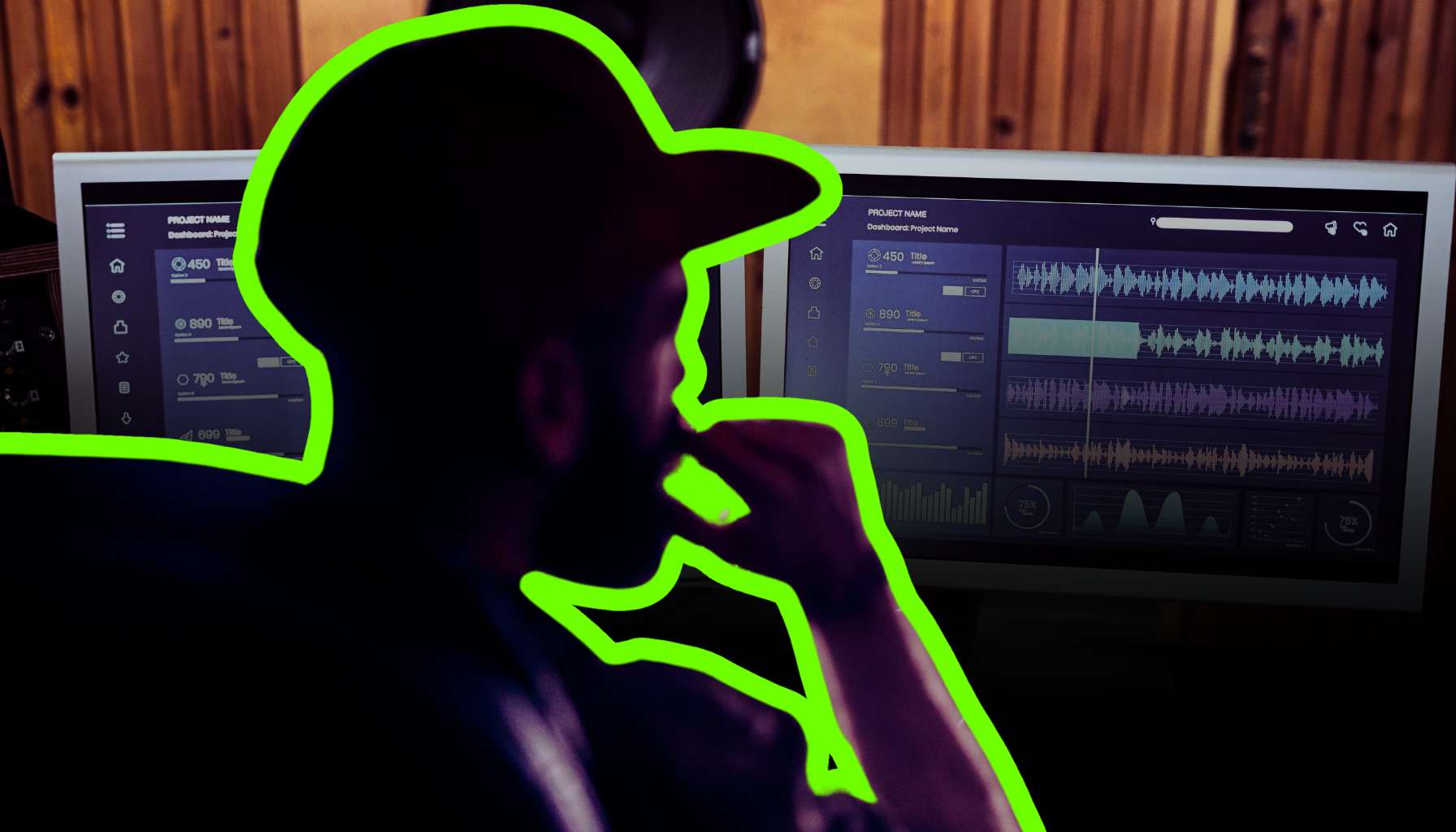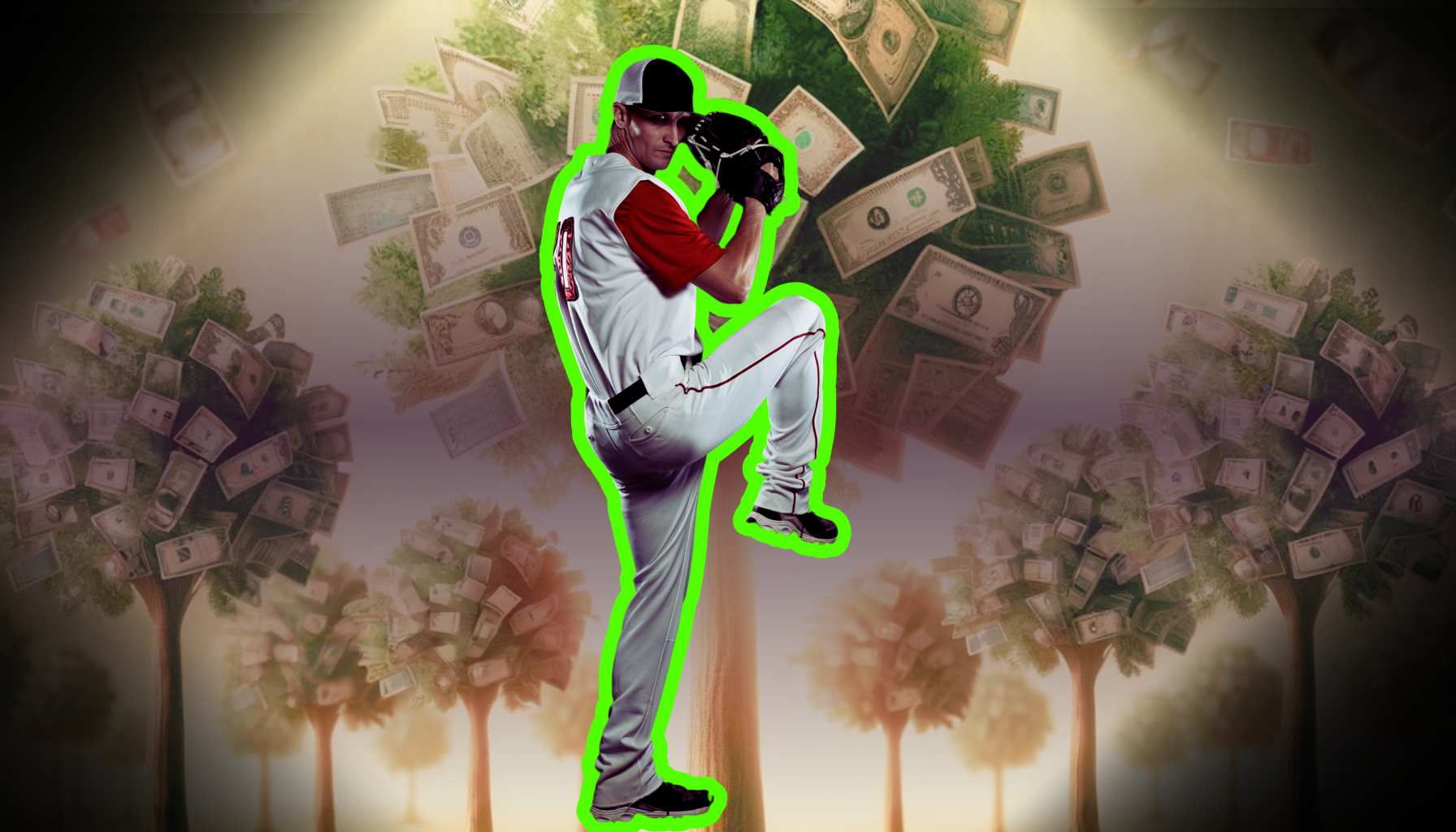The Dynamic Music Industry Landscape
Shifts from Traditional to Independent Music Models
Once upon a time, record labels were the gatekeepers, the all-seeing eyes of Sauron in the music industry. But hey, Frodo’s journey has changed. Independent musicians are now taking the ring to Mordor themselves, thanks to digital distribution and streaming platforms. These tools have shifted the power, giving artists the ability to release music on their own terms. However, with great power comes great responsibility, and the DIY route means tackling the marketing, distribution, and promotion dragons solo.
The Impact of Digital Distribution and Streaming
Streaming services are the new radio, but without the DJ to bribe for spins. They’ve democratized music consumption, sure, but they’ve also cranked up the competition. Every day, thousands of tracks flood Spotify, Apple Music, and the like, making it tougher than a two-dollar steak for independent artists to stand out. And while digital distribution has put music publishing at your fingertips, it’s also a double-edged sword that can slice into your visibility if you’re not savvy with your SEO and online presence.
Challenges Independent Musicians and Bands Face
Competition and Market Saturation
It’s a jungle out there, and every musician is swinging from the vines trying to get noticed. The competition is stiffer than a starched collar, and standing out is harder than finding a needle in a haystack. Market saturation isn’t just a buzzword; it’s the reality that your next banger is up against a tidal wave of tunes from every Tom, Dick, and Harriet with a SoundCloud account.
Visibility and Recognition Issues
Let’s face it, without the muscle of a record label, getting your face on the Mount Rushmore of music is like climbing Everest in flip-flops. You need to hustle harder than a pool shark to get that visibility. Recognition? That’s the golden ticket, but it’s not just about the music. It’s about branding, networking, and sometimes, just plain old dumb luck. So, what’s an independent artist to do? Strap on your boots, because it’s going to be a climb—but hey, the view from the top is worth it.
The Business Model of Record Labels
Risk Management and Investment Strategy
Let’s cut to the chase: record labels are businesses, not charity organizations. They’re on the hunt for the next big thing, but they’re not throwing darts in the dark. They prefer the sure bets, the low-risk, high-reward investments. Think of them as the cautious gamblers at the poker table, only going all-in on a royal flush. For independent musicians, this means that unless you’re walking in with aces up your sleeve—like a solid fan base or a viral hit—you might not even get a seat at the table.
Marketing and Promotion Capabilities
It’s no secret that record labels have the Midas touch when it comes to marketing and promotion. They’ve got the resources, the connections, and the know-how to turn music into gold—or at least into something that can pay the bills. But here’s the kicker: they tend to bet on the horse that’s already winning. If you’re an artist with an established fan base, you’re like a shiny object that’s caught their eye. Without that sparkle, breaking into the market can be as tough as convincing a cat to take a bath.
Challenges Independent Musicians and Bands Face
Competition and Market Saturation
Imagine shouting into a hurricane and expecting to be heard. That’s what it’s like for independent artists trying to get noticed in today’s music industry. With the floodgates of digital distribution wide open, the market is as saturated as a sponge in a swimming pool. Standing out means not just being good, but being exceptional, unique, and savvy enough to navigate the treacherous waters of the music biz without a life jacket.
Visibility and Recognition Issues
Visibility is the holy grail for musicians, but it’s as elusive as a four-leaf clover. And recognition? That’s the pot of gold at the end of the rainbow. Without the backing of a label, independent artists need to hustle twice as hard for half the attention. It’s a David vs. Goliath scenario, but remember, David had a slingshot. In the digital age, that slingshot is a combination of social media savvy, branding, and a sprinkle of good old-fashioned luck.
The Importance of Market Viability
Commercial Potential and Genre Trends
Ever wonder why that catchy tune you hum in the shower isn’t blasting from every speaker in the country? It’s all about commercial potential and genre trends, folks. Record labels are like talent-seeking missiles, zeroing in on what’s hot, what sells, and what’s more infectious than the latest viral dance move. They’re not just looking for good music; they’re looking for the next chart-topper that fits snugly into the zeitgeist. If your sound is more niche than knitting sweaters for snakes, you might not make the cut in the mainstream market.
Data-Driven Decisions
Today’s A&R execs are more like data scientists with a Spotify subscription. They love numbers, and not just the ones with dollar signs. Streaming stats, social media metrics, and online engagement are the new crystal balls of the music industry. If your numbers are more “meh” than “wow,” labels might just swipe left on your profile. But don’t let that stop you from building your brand. In the end, data is king, and you’ve got to wear the crown if you want to rule the charts.
Challenges Independent Musicians and Bands Face
Competition and Market Saturation
Remember the good old days when you could count the number of TV channels on one hand? Those days are gone, and so is the simplicity of the music market. Today, it’s a free-for-all, a royal rumble where every indie artist is elbow-dropping for attention. With so many voices, it’s easy to get drowned out in the cacophony. To stand out, you’ve got to be louder, prouder, and more persistent than a telemarketer on commission.
Visibility and Recognition Issues
Getting noticed by record labels is like trying to get a text back from someone who’s ghosting you—it’s all about visibility and recognition. Without the backing of a big label, you’re a lone wolf in a forest full of them. And in this digital age, where everyone’s fighting for the spotlight, you’ve got to have more tricks up your sleeve than a magician with a gambling problem. Shine bright, be relentless, and maybe, just maybe, you’ll catch the eye of the big wigs.
The Role of Branding and Image
Artist Brand Consistency
Imagine walking into a supermarket and finding your favorite cereal box, but this time it’s green instead of red. Confusing, right? That’s what it’s like when an artist lacks brand consistency. Record labels are on the prowl for acts that have their branding down pat. They want an image so well-defined it could be its own Halloween costume. If you’re flipping personas more than a spy in a Cold War novel, labels might just pass you by for someone with a more cohesive brand identity.
Professionalism in Presentation
First impressions are like your first high school crush—intense and unforgettable. In the music world, that means high-quality promotional materials are your best wingman. A pixelated selfie as your EP cover? That’s a no-go. Labels want to see that you mean business, with a capital B. They’re looking for artists who present themselves with the finesse of a Broadway show, not a backyard puppet theater. So, if your promo looks like it was shot with a potato, it’s time for an upgrade.
Challenges Independent Musicians and Bands Face
Competition and Market Saturation
Here’s the deal: the music market is more crowded than a clown car. There are millions of tracks out there, and everyone’s vying for the same spotlight. To make it, you’ve got to stand out like a unicorn at a horse race. That means your brand and image need to be on point, distinctive, and memorable. Without that, you’re just another face in the crowd, another voice in the choir.
Visibility and Recognition Issues
So you’ve got talent? Great. But can you sell it? Without the visibility and recognition that come with a strong brand, even the most talented artists can fade into obscurity. It’s not just about the music; it’s about the package it comes in. Think of it as a gift—no matter what’s inside, a shoddy wrapping job can ruin the whole presentation. In the end, it’s the total package that gets you noticed, not just the bow on top.
Networking and Industry Connections
The Power of Relationships
Think of the music industry as one big high school cafeteria. You’ve got the cool kids’ table—that’s where the record labels and hotshot producers sit. To get a seat, you need an in. That’s where networking comes into play. It’s not just about who you know; it’s about who knows you. Labels are like the popular kids, relying on their inner circle to tip them off about the next big act. If you’re not rubbing elbows with industry insiders, you might as well be invisible.
Access to Decision-Makers
Getting your demo into the hands of a label exec can feel like trying to score a date with a celebrity—intimidating and nearly impossible. But fear not. There are strategies to infiltrate the inner sanctum. Showcase your music at industry events, schmooze at music festivals, and maybe slip a USB stick into a handshake if you’re feeling bold. It’s about making connections that count, because in the end, it’s the decision-makers who can greenlight your ascent to stardom.
Challenges Independent Musicians and Bands Face
Competition and Market Saturation
Here’s a hard truth: talent alone won’t get you to the top. It’s a jungle out there, and every other artist is also trying to be the king or queen of the music savannah. The competition is fierce, and the market is as saturated as a wet sponge. To cut through the noise, you need allies, advocates, and a network that can catapult you into the limelight. Without that support system, you’re just another voice in the chorus, struggling to be heard.
Visibility and Recognition Issues
It’s not just about making great music; it’s about making sure the right people hear it. Without the visibility that comes from strong industry connections, you’re a tree falling in an empty forest. Does it make a sound? Who knows! What’s clear is that without a network to amplify your music, your chances of getting noticed by a label are as slim as a lottery win. So start shaking hands, because in this game, who you know is just as important as what you play.
Legal and Financial Considerations
Complex Contractual Agreements
Signing with a label isn’t just a handshake and a smile; it’s more like agreeing to the terms and conditions of a new app—except this time, you actually need to read them. Labels are looking for deals that are sweeter than grandma’s apple pie, which often means complex contracts that can make your head spin faster than a record. Independent artists can be wary of these legal labyrinths, and for good reason. One wrong turn and you could be signing away more than you bargained for.
Revenue Sharing and Rights Management
Let’s talk turkey—specifically, the slice of the pie you get to keep. Labels have a hearty appetite when it comes to revenue sharing and rights management. They want a big piece, and if you’re not careful, you might be left with the crumbs. Independent musicians often aim to retain control over their music and earnings, which can be a deal-breaker for labels used to calling the shots. It’s a delicate dance between control and compromise, and not everyone’s got the right moves.
Challenges Independent Musicians and Bands Face
Competition and Market Saturation
It’s a battlefield out there, and every musician is fighting for their share of the spoils. With so many artists trying to make it big, record labels can afford to be picky eaters, choosing only the most lucrative feasts. If you’re bringing a knife to a gunfight in terms of legal and financial prowess, you’re going to be outgunned by the more savvy soldiers of sound.
Visibility and Recognition Issues
Even if you’ve got the talent of a rockstar, without the visibility and the right connections, you’re just wailing in the wind. Record labels are like the popular kids in school; they notice you only if you’re in the spotlight or if someone they trust points you out. So, if you’re not up to speed on the legal and financial nitty-gritty, or if you’re not willing to share your lunch money, you might just be left out of the cool crowd.
Quality and Production Standards
Professional Recording and Production
Let’s cut to the chase: record labels are like gourmet chefs—they have a taste for the finer things, and that includes music production. They want that steak cooked to perfection, and in music terms, that means high-quality, studio-grade recordings. If you’re serving up tracks that sound like they were recorded in a tin can, don’t expect labels to come knocking. They’re listening for that crystal-clear sound that only comes from professional production, and if you can’t deliver that, you’re just not on the menu.
Consistency in Output
Now, don’t think hitting the studio once for a polished single will have record labels chasing you down the street. They’re not one-hit wonders; they’re in it for the long haul. Consistency is key. They want to see a track record of quality releases, not just a flash in the pan. If your discography is more up and down than a yo-yo, labels will question whether you’re a safe bet. Keep it steady, and you might just get that record deal.
Challenges Independent Musicians and Bands Face
Competition and Market Saturation
In the wild west of the music industry, everyone’s gunning for the top spot, and only the sharpest shooters make it. With so many artists out there, record labels can afford to be picky with who they sign. If your production quality doesn’t stand out, you’ll be lost in the shuffle faster than a card dealer in Vegas. It’s not just about being good; it’s about being consistently great.
Visibility and Recognition Issues
Even if you’ve got the chops, without the right exposure, you’re playing to an empty room. Labels are on the lookout for artists who not only produce quality music but also have the visibility to match. If you’re not lighting up the charts or buzzing on social media, you might as well be a ghost. It’s not just about the music; it’s about being seen and heard in all the right places.
The Impact of DIY Culture
Self-Promotion and Self-Release Trends
It’s the age of the independent artist, the bedroom producer, the self-made music mogul. With platforms like SoundCloud and Bandcamp, musicians are bypassing traditional gatekeepers and taking their tunes straight to the masses. This DIY revolution is reshaping the music landscape, and record labels can’t help but take notice. They’re scouting for artists who have mastered the art of self-promotion and racked up impressive streaming numbers, all without the help of a big-name label.
Crowdfunding and Fan Support
When it comes to funding, artists are no longer waiting for a record label’s golden ticket. Crowdfunding platforms have turned fans into patrons of the arts, bankrolling everything from EPs to world tours. This fan-fueled financial backing is a testament to an artist’s market appeal, and savvy labels are watching. They see a successful crowdfunding campaign as proof positive that an artist has a dedicated fanbase willing to put their money where their ears are.
Challenges Independent Musicians and Bands Face
Competition and Market Saturation
But let’s not sugarcoat it; the DIY path is no cakewalk. The music market is as crowded as a rush-hour subway, and standing out is tougher than a two-dollar steak. Record labels are inundated with self-released tracks, and only the cream of the crop make it onto their radar. Without a distinctive sound and a strategic marketing plan, many DIY artists are drowned out by the noise.
Visibility and Recognition Issues
Even with a killer track, if you’re not visible, you’re virtually non-existent. Record labels are on the hunt for artists who’ve built a strong online presence and engaged fanbase. If you’re not popping up on playlists or trending on social media, labels might pass you by for someone with more digital clout. It’s a digital dog-eat-dog world, and without a bite, you might just be barking up the wrong tree.
Adapting to the Digital Age
Online Presence and Digital Footprint
Imagine the digital world as a vast ocean, and every artist is a boat trying to catch the attention of the big fish—record labels. In this sea of content, a strong online presence is your beacon. It’s not enough to just float; you need to set off flares. Labels are scouting for artists who are savvy with SEO, who know their way around social media algorithms, and who can navigate the digital waters to land on the shores of Spotify playlists and YouTube trending pages. If your digital footprint is more like a faint tiptoe than a stomp, it’s time to up your game.
Streaming and Playlist Inclusion
Now, let’s talk about the holy grail of digital visibility—playlist inclusion. Landing on a Spotify playlist is like getting an invite to the hottest party in town. It’s where the cool kids hang out, and if you’re not on the list, well, you’re stuck outside waiting for a miracle. Record labels know this, and they’re keen on artists who’ve managed to charm their way into these playlists because it means one thing: potential for viral success. So, if you’re not playlisting, you’re basically playing hide and seek with your music career.
Challenges Independent Musicians and Bands Face
Competition and Market Saturation
But here’s the rub: everyone and their grandma is trying to get on those playlists. The competition is fierce, and the market is as saturated as a sponge in a monsoon. Labels are inundated with talent, so standing out is more crucial than ever. If you’re not leveraging every digital platform to its fullest, you’re just another drop in the ocean, and labels are looking for the waves.
Visibility and Recognition Issues
And let’s be real, visibility isn’t just about numbers; it’s about engagement. Labels are on the prowl for artists who not only have followers but have fans who are actively listening, sharing, and engaging with their content. It’s the difference between a billboard that everyone sees but ignores and a street performer who draws a crowd. If your online engagement is as quiet as a library, it’s time to turn up the volume.
Understanding the Reasons Behind Labels’ Decisions
Let’s get down to brass tacks: record labels are businesses, not charity organizations. They’re not cold-hearted, but they are cold-calculating. They’ve got an eagle eye on the bottom line and a sixth sense for sniffing out potential hits. So, when they seem to snub independent musicians, it’s not personal—it’s just business. They’re looking for a surefire bet, and if you’re not ticking all the boxes of marketability, brand consistency, and digital savviness, you might as well be invisible to them.
Strategies for Independent Artists to Increase Their Appeal
But don’t throw in the towel just yet. There’s a playbook for catching a label’s eye, and it starts with understanding their game. First, hone your craft until it shines like a diamond in a coal mine. Next, build your brand with the precision of a Swiss watchmaker. Then, get your online presence popping like popcorn in a microwave. And finally, network like you’re running for mayor. Do all this, and you’ll not just get labels’ attention—you’ll have them knocking on your door.
Remember, in this digital jungle, it’s survival of the fittest, and you’ve got to be a lion, not a lamb. Keep pushing the envelope, keep engaging with your fans, and keep your music quality top-notch. With the right strategy and a dash of luck, you’ll turn the tables and have record labels wondering why they ever ignored you in the first place.















